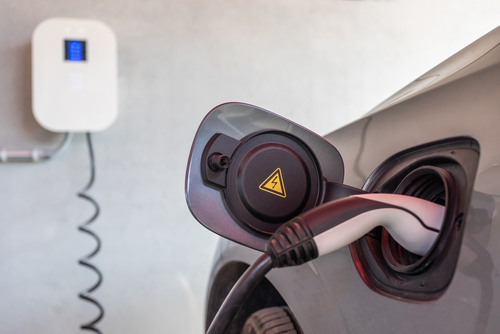
The Inflation Reduction Act of 2022 includes incentives for businesses and individuals purchasing electric-vehicle chargers, but supply-chain issues might make the devices difficult to find.
Charging manufacturers are having trouble getting the components they need to build chargers.
Mike Calise, Americas president for Tritium, a charger manufacturer, believes supply chain problems will subside over the next 18 months. Chargers are essential to an increase in electric-vehicle adoption, he said.
“In order to get this transition from just the early adopters to the mainstream buyers, and that includes passenger and fleet, you need to deliver tens of thousands of these units,” Calise told the Wall Street Journal.
The law enhances federal tax credits that expired earlier this year. Over 10 years, $1.7 billion in tax credits for chargers or other alternative-fuels equipment will be claimed, according to budget estimators.
The individual tax credit is applicable in any community but does not don’t apply to chargers being built in wealthier communities.
Eligible individuals receive a 30-percent tax credit for the installed cost of a charger with a maximum credit of $1,000.
Businesses installing large amounts of equipment or companies switching their commercial fleets are the ones most likely to benefit from the tax credit, the Atlas Public Policy said.